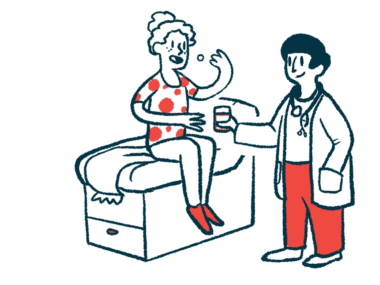Myasthenia gravis does not make us powerless
When I feel powerless, I reflect on what I can control
Written by |

As a historian and teacher, I often make connections between current events and the past. Because I also live with myasthenia gravis (MG), recent events called to mind a connection between the past and MG.
In June, the Titan submersible imploded, resulting in the deaths of all five people on board. This tragedy is believed to have occurred within yards of the wreckage of the Titanic, which sank April 14-15, 1912, resulting in the loss of more than 1,500 souls. Both tragedies remind me that much of life is outside of our control.
In June 2020, I was diagnosed with MG. The early days of my journey taught me that nature is unforgiving. Given the right conditions, ships sink, submersibles implode, and people develop rare diseases. Nature has the power to greatly alter our lives.
Letting go of hubris
“The story of the Titanic is the story of the cost of hubris. It is a story as old as literature itself, one that never ceases to mesmerize us,” a story in the Toronto Star notes. “It is the story of Icarus, of Oedipus, of Frankenstein, of the Titanic, even that of Obi-Wan Kenobi and Luke Skywalker.” But MG has taught me that hubris isn’t limited to major literary figures or historical events.
Prior to my diagnosis, I lived with hubris that allowed me to ignore the possibility that disease could radically change my life. It couldn’t and wouldn’t happen to me. I shared this hubris with those who built the Titanic and the Titan. We didn’t recognize our powerlessness against the strength of nature. It seems strange that MG connects me with famous people and events.
According to Blue Moon Senior Counseling, “The loss of control that happens when you have a chronic illness can cause mental or emotional turmoil. The diagnosis may have been completely unexpected, so you feel like your life has changed dramatically without your input.”
My MG diagnosis changed my personal relationships, my career path, and other areas of my life I once felt control over. The never-ending uncertainty of this chronic disease forced me to confront and accept my powerlessness.
However, I’ve since learned that I don’t lack control over everything.
‘What things are up to you?’
I have little power over the physical vagaries of MG. In a similar vein, the Titanic and Titan passengers had little power over the ocean.
Where I have power is in my response to life with MG. According to Psychology Today, “We can control our actions, the goals we pursue, the values we adopt, and our mental attitudes. Yet we also need to recognize we can’t control that which lies beyond our reach. So, paraphrasing Epictetus, what things are up to you and what aren’t?”
“Eternal Father, Strong to Save” is known as the “Navy Hymn.” Inspired by Psalm 107:23-31, it was sung during a hymn service on board the Titanic, hours before the ship foundered. As I navigate the powerful, unknown sea that is MG, the hymn’s words offer comfort. I join the Titanic’s passengers in singing to our creator, “Oh hear us when we cry to Thee/ For those in peril on the sea.”
Note: Myasthenia Gravis News is strictly a news and information website about the disease. It does not provide medical advice, diagnosis, or treatment. This content is not intended to be a substitute for professional medical advice, diagnosis, or treatment. Always seek the advice of your physician or other qualified health provider with any questions you may have regarding a medical condition. Never disregard professional medical advice or delay in seeking it because of something you have read on this website. The opinions expressed in this column are not those of Myasthenia Gravis News or its parent company, Bionews, and are intended to spark discussion about issues pertaining to myasthenia gravis.




Diana Rutledge
Your analogy has given me new insight as a fellow MG daily survivor. Thank you.